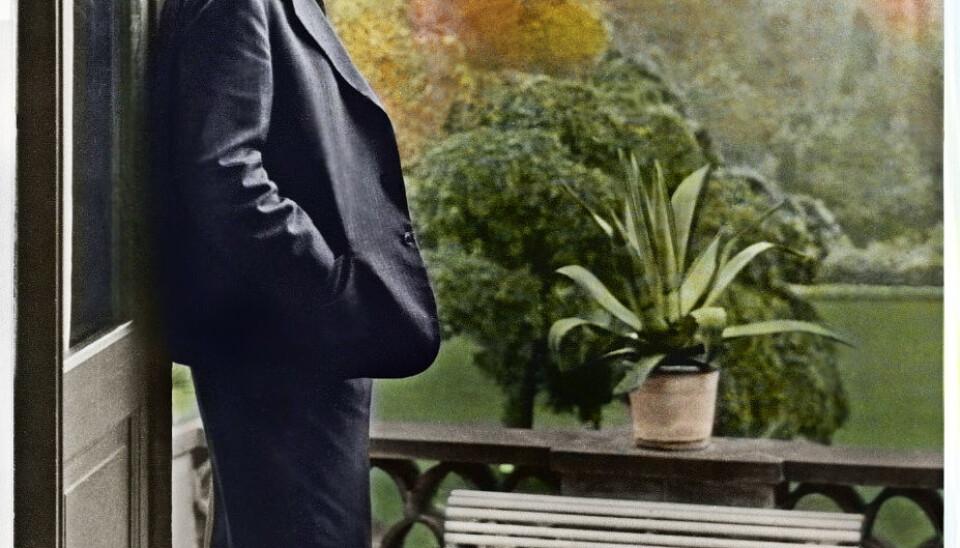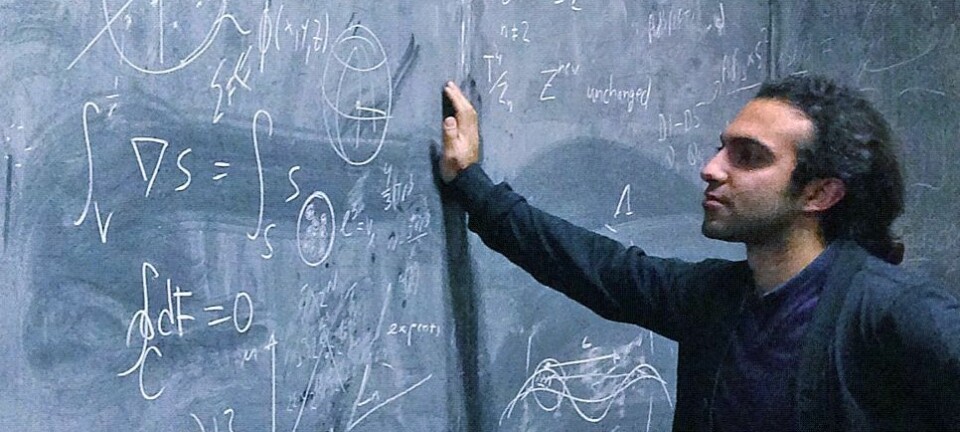
Bohr inspires debate on drones and space weapons
International scientists and decision-makers will gather in Copenhagen next month to discuss how dangerous technologies are to be shared in an ‘open world’.
Killer drones. You’ve probably heard about them but if you’re from the West, chances are you have never actually seen one. They hide in the clouds, patrolling the skies above Pakistan or Afghanistan sending a video-feed back to a remote pilot thousands of miles away in the US.
For now at least, since the US have almost exclusive rights on the unmanned machines estimated to have killed more than 3,000 people in the Middle East and Africa since 2002.
But what happens in a couple of years when drone technologies have found their way to US allies and enemies, asks Professor Ole Wæver, director of the Centre for Resolution of International Conflicts, Copenhagen University.
“Imagine all the superpowers behaving like the US today. If there’s someone they don’t like, they shoot them down – regardless of the persons’ location in the world.”
The development of technology has now reached a stage where the facilities for communication have provided the means for making all mankind a co-operating unit, and where at the same time fatal consequences to civilisation may ensue unless international divergences are considered as issues to be settled by consultation based on free access to all relevant information.
What kind of world would that be, he asks.
“You’d risk becoming collateral damage because the Russians might think your neighbour is a terrorist and the best course of action would be to send a missile against him.”
International experts summoned to talks on dangerous science
However, drones are but one example of modern technologies that might seem harmless for now – if you live in the West, that is – but could have consequences reaching far into the future, says Wæver.
Research in modern medicine for example grants us novel ways to treat and cure disease, but at the same time, an increased understanding of viruses and molecular mechanisms could be exploited to create bioterror, he says.
The efforts of all supporters of international co-operation, individuals as well as nations, will be needed to create in all countries an opinion to voice, with ever increasing clarity and strength, the demand for an open world.
To anticipate and discuss these unforeseen threats, Wæver and a league of international scientists and decision-makers will gather in Copenhagen in early December 2013 for the ’Niels Bohr Symposium on an Open World’, arranged by Copenhagen University.
Parallels to Bohr’s early warnings of the atom bomb
While most people know Niels Bohr for his model of the atom – this year marks its 100-year anniversary – another side to Bohr was his advocacy for an open world where research and technology wouldn’t be shrouded in secrecy for the gain of a single nation.
“To understand Bohr, it’s necessary to take account of the fact that for the last 20 years of his life he was more concerned with the political and societal aspects of science. In particular, the consequences of the fission of the atom and thus the atom bomb,” says Wæver.
During World War 2, Bohr took part in the Manhattan project and helped the Americans construct the first atom bomb.
But before the bomb was even finished, the foreseeing physicist realised how it would transform the world if American and British forces kept the technology secret from their allies.
“He quickly anticipated an escalating nuclear arms race between the USSR and the West – a dangerous situation that would devour enormous resources and completely cancel the positive aspects of nuclear technology.”
Churchill mistrusted Bohr’s vision of an open world
Realising the danger, Bohr sought to warn the allied leaders as early as in 1943. But no one wanted to listen – neither Roosevelt nor Churchill – and Bohr’s repeated suggestions to share the nuclear secrets with the Russians were ignored.
However, his radical ideas were duly noted by the two statesmen and during a meeting with Roosevelt, Churchill remarked it might be in their interest to keep an extra eye on Bohr in the future – he could be up to something.
Bohr kept quiet but was rentained in England during the final months of the war and was thus kept at a distance from the Manhattan Project. One can imagine his horror when he learned of Little Boy’s detonation above Hiroshima on 6 August 1945.
Worried about the post-bomb future, Bohr kept arguing the necessity for greater openness, calling upon the US government in 1946 and 1948. With no results, and in 1950 he sat down and wrote an open letter to the UN where he put forth his vision of a stable world order.
Openness could be the solution to conflict
”The interesting thing is that Bohr argued that the key to avoiding this military race with the USSR was greater openness. Complete sharing of technological secrets,” says Wæver.
Drawing inspiration from Bohr’s thoughts on an open world, Wæver has been one of the organisers of next month’s Copenhagen-conference.
“We have attempted to place Bohr’s ideas in a modern context in different ways – they all differ from Bohr’s actions but in their essence they are very similar to his original ideas,” he says.
“The point is that we need to do something like Bohr did and think of the implications of our time’s technology and science in a way that only people with deep scientific knowledge can do. This holds true for numerous fields ranging from drones and space weapons to medicine and climate change.”
The core concept of ‘openness’ needs to be revised, he adds, and the conference will see speakers talk of the future shape of the internet, NSA-revelations, ‘open source’ economies and the role of social media in political revolutions.
A new letter to the UN needs to be practical
Like Bohr, all of the conference speakers will be signing a new open letter to the UN. And like Bohr, the letter will detail suggestions to the World’s decision-makers. But one thing will be different:
Even today, if the World's greatest physicist were to write a letter to the UN, it would be unlikely to have any effect.
What we’ll do is try and come up with a structure that will make it possible for warnings and advice from the scientific community to be heard,” says Wæver.
”The irony is that the problem has only grown. Technology and science play an even more important role in society today than back then and the number of radical breakthroughs has increased tremendously. But at the same time we have become much more adept at idly standing by than they were back in Bohr’s days.”
The conference on Bohr’s open world takes place on December 4th-6th at Copenhagen University. You can read more about the programme and registration here.
-------------------
Read the Danish version of this article at videnskab.dk
Translated by: Kristian Secher










